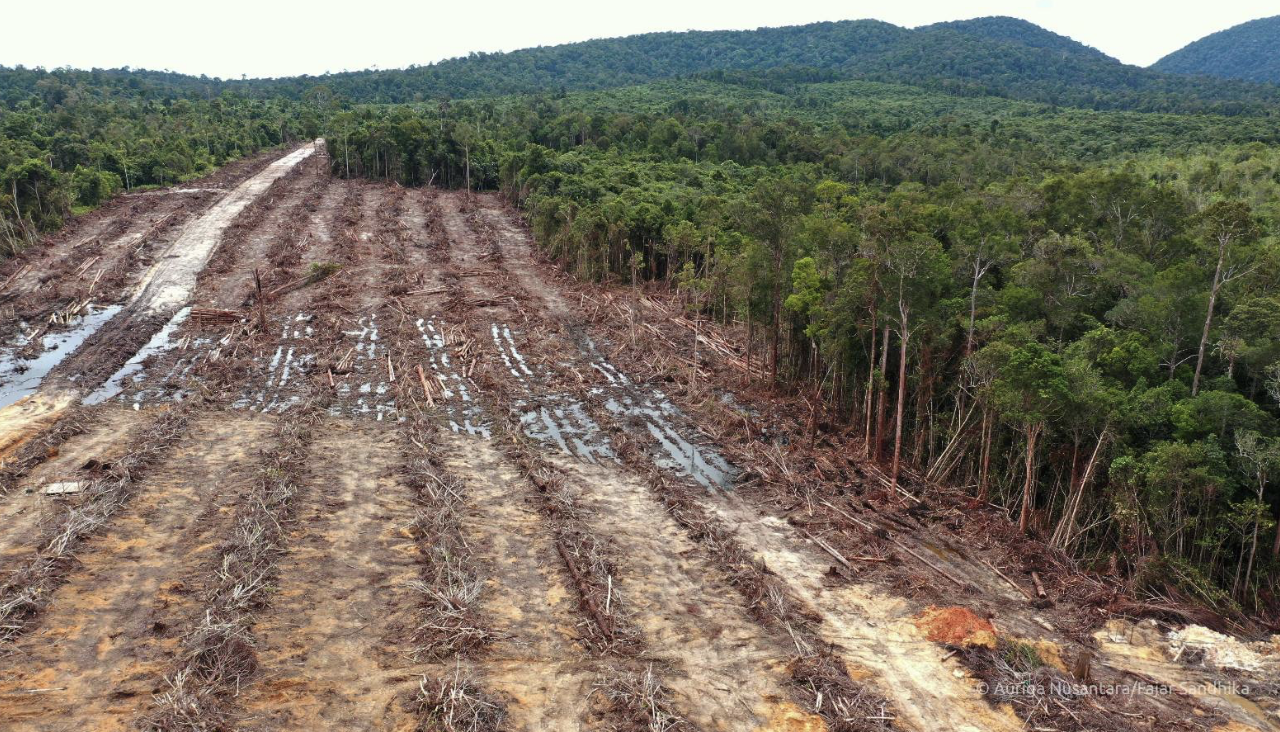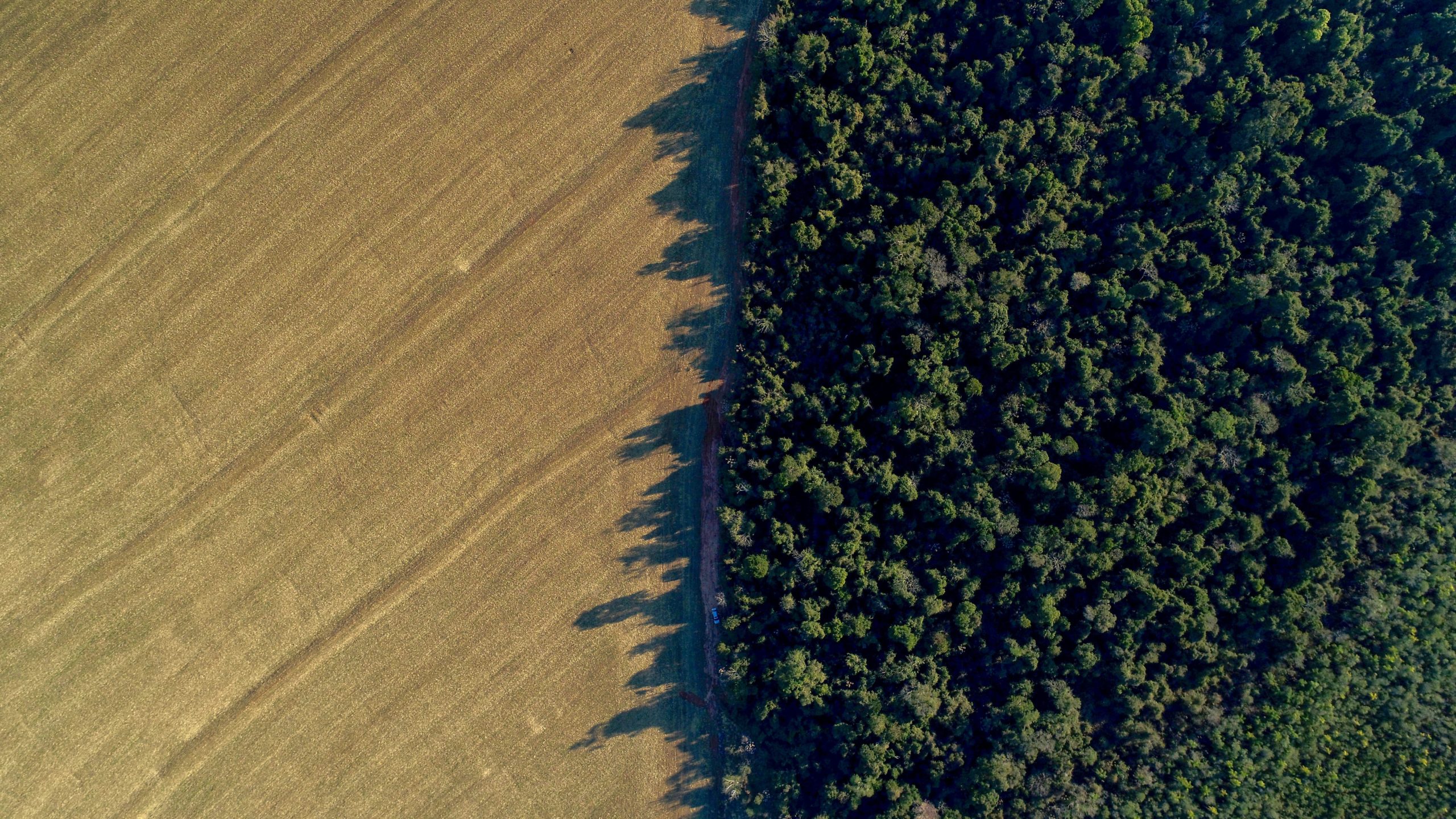
Foul Play: As Brazil burns call for robust UK environment law to end soy-driven deforestation feeding chicken sector
For the first time Mighty Earth establishes the commercial ties between soy giant Cargill and factory-farmed chicken producer Moy Park, risking non-compliance with upcoming UK deforestation law for British supermarkets and fast-food chains
A new Mighty Earth report, Foul Play, reveals how the UK chicken sector, including leading supermarkets and fast-food restaurants, risk exposure to illegal deforestation-linked soy via US commodities giant, Cargill. The findings come as Brazil experiences the worst forest fires in decades, driven largely by factory farming. In the Cerrado, where Cargill has extensive soy operations, 2.4 million hectares were burned in August 2024, representing nearly half (43%) of Brazil’s total burned area. Across the country, Brazil recorded a 149% increase of burned area in August 2024 compared to August 2023.
For the first time, Mighty Earth’s investigation, in collaboration with AGtivist, has established commercial ties between Cargill and Moy Park, one of the largest poultry producers in the UK, and owned by JBS USA subsidiary Pilgrim’s Pride. Moy Park, which operates Intensive Poultry Units (IPUs) across the UK, supplies chicken products to Aldi, Asda, Co-op, Sainsbury’s, Tesco, Waitrose, KFC and McDonald’s. The report warns that without robust regulations in an upcoming UK deforestation law, British businesses will be unable to eradicate illegal deforestation in soy and chicken supply chains.
Cargill is one of the world’s most secretive companies, whose soy supply chains have repeatedly been connected to illegal deforestation in vulnerable biomes such as the Cerrado savannah. UK companies have been calling for legislative measures to clean up supply chains, but Cargill’s opaque reporting and lack of traceability leaves a blind spot in proving compliance.
The soy industry supports a UK chicken sector, whereby millions of birds live miserable lives crammed into IPUs, fed on high-protein soymeal to make them grow at an unnatural rate to meet the demand, of food retail and food service, for cheap chicken. Moy Park has boasted of processing 6 million birds every week.
Mighty Earth’s Senior Director for the UK, Gemma Hoskins, who authored the report, said:
“Cargill’s murky operations and lack of traceability means companies across the UK chicken sector risk falling foul of upcoming UK deforestation legislation designed to clean up commodity supply chains, and of missing 2025 zero-deforestation targets.”
“Supermarkets and fast-food chains from Tesco to McDonald’s rely on suppliers like Moy Park for a steady supply of cheap, factory farmed chicken, where millions of birds are crammed into sheds across the UK and pumped with soy grown on illegally deforested land in Brazil.”
“Not only must the UK Government act with urgency to bring forest destroyers like Cargill to heel by ensuring that transparent and public reporting is enshrined in law, but it also needs to take a hard look at our food systems, and the impact they have on forests, nature and animal welfare.”
How we tracked Cargill’s and Moy Park’s links to illegal deforestation
In April 2024, investigators tracked trucks from Cargill’s soy crusher terminal in Liverpool docks to Moy Park feed mills in Lincolnshire and Derbyshire, which supply feed to Moy Park’s extensive network of over 800 intensive poultry farms in the UK, confirming for the first time the link between Cargill and Moy Park.
In 2023, Moy Park’s used 217,392 tons, representing over 14% of the entire UK’s total poultry soybean meal usage. An estimated 97.5% of Moy Park’s soy came from ‘High-Risk’ deforestation countries including Brazil (40.4%), Paraguay (44.8%) and Argentina (2.3%).
In our report we identify seven cases of recent illegal deforestation in Brazil tied to Cargill in four municipalities linked to the UK soy supply. These cases represent 11,827 hectares of deforestation between April 2022 and September 2023, with more than half (6,441 hectares) occurring within in the farms’ Areas of Permanent Protection (APP) or legal reserve, an indicator of illegality.
Risk of breaching UK laws
Schedule 17 of the UK Environment Act (2021) will require companies to prove that commodities, including meat and soy, have not driven illegal deforestation in producing countries after January 1, 2020, at the latest. All the food retail and food service companies listed above have pledged to be deforestation and conversion-free by 2025. The links between one of their main poultry suppliers Moy Park and Cargill’s deforestation-contaminated Brazilian soy raises the risk of breaching the upcoming UK law. Cargill’s role in stalling industry progress on eliminating deforestation voluntarily, means stringent legal regulation is needed more than ever to protect global forests.
What Mighty Earth is calling for:
The new UK Government must urgently focus efforts on implementing Schedule 17 of the Environment Act (2021) and to prioritise strengthening the secondary legislation to:
- Ensure guidance obliges businesses to verify that relevant land use and ownership, environmental and human rights in producer countries have not been violated.
- Require businesses using forest risk commodities in the UK to collect farm-unit level information about the origin of their product as a mandatary part of their due diligence reporting.
- Remove any reference to the suggested ‘ALARP’ (as low as reasonably practicable) model, identified in our report as unsuitable for this legislation’s purposes.
- Work closely with the EU to ensure synergy across reporting, easing the burden of a two-system approach for UK businesses and suppliers.
- Establish and adequately resource the enforcement and monitoring body responsible for assessing compliance and urgently confirm commencement dates.


